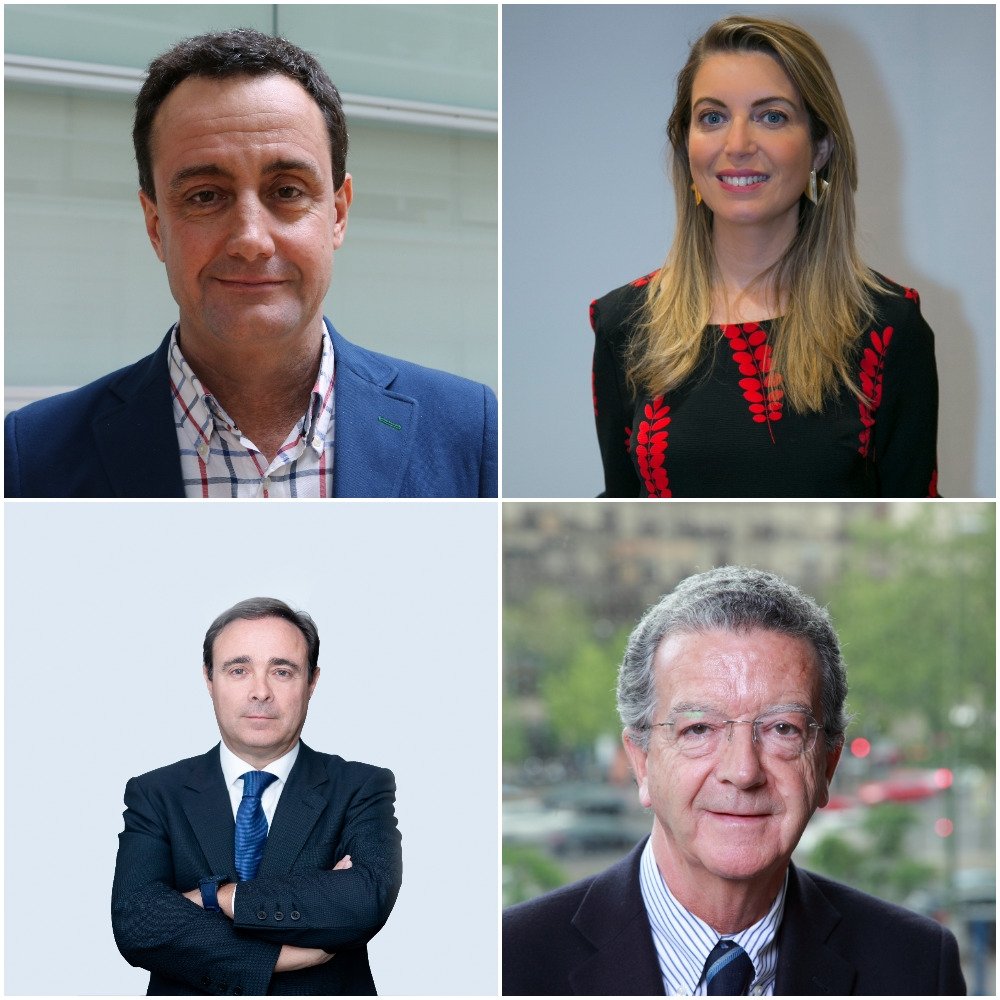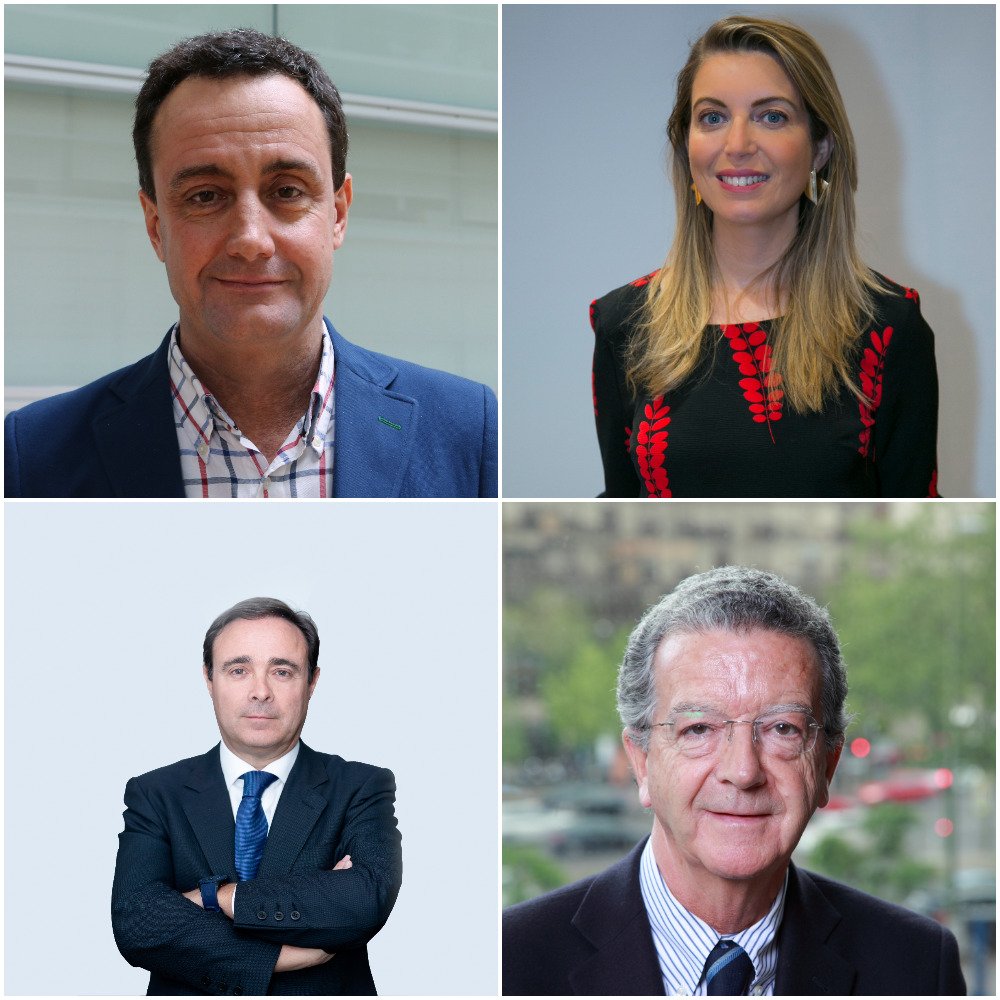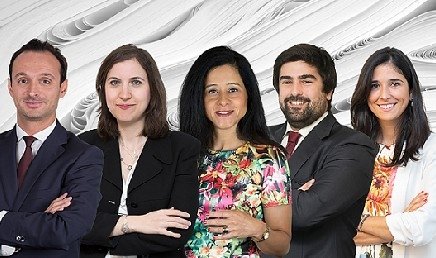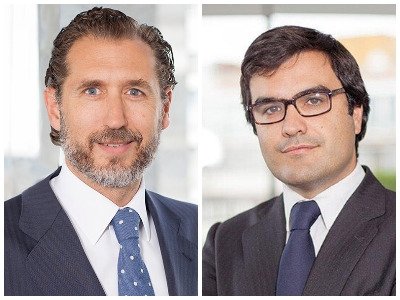Law firms’ right hand lawyers

The new normality is presented as a path full of uncertainty and emptiness that can only be illuminated by the voice of the most experienced. For this reason, Iberian Lawyer wanted to ask those who advise firms at the highest strategic level in their different specialities what role they are playing at the present time and if, indeed, this is as crucial as we suppose. Four of counsel from different firms tell us about their experience

ADAPTATION AND ANTICIPATION AGAINST UNCERTAINTY
“In an environment as uncertain in all respects as the present one, the ability to adapt is essential. In that sense, I believe that an of counsel must be especially active in the sense of understanding that new environment and finding the trends and general lines that will condition the new situation. He or she must provide the added value derived from his or her previous professional experience and put it at the service of a legal foresight activity within the firm ́s framework for which he or she provides services. This is particularly true in the area of Regulatory Compliance in the technology and digital sector, where standards lag behind innovation inherent in the sector.” The speaker is Vicente Moret (pictured bottom left), Congressional Attorney at Cortes Generales and Cybersecurity of counsel at Andersen Tax & Legal. Moret explains that the of counsel must develop legal intelligence work to advise the firm on seeking new lines of business or modifying existing ones. Doing this requires a good knowledge of the sector of activity to which the specialization applies. He or She must be aware of what is happening on a daily basis, and especially in this new context, in which regulation is going to be decisive.
“The States and the EU are going to intensively intervene in all sectors of the economy. It is therefore decisive to carry out legal foresight that anticipates the regulatory scenario,” he includes. “The current situation generates an economic crisis that is different from the previous one because it is becoming and is linked to a global health crisis, which prevents us from estimating how long it will last and from making reliable projections,” says Amelia Buergo (pictured top right), Banking & Finance of counsel at Gómez-Acebo & Pombo. “This is why we try to anticipate our clients’ needs more than ever, based on our experience, and designing new protection mechanisms. Thus, we are continuously studying the new regulations that are being published, preparing summaries and guides for our clients and taking care of their specific queries in this regard. In our practice area, the regulation on financing with ICO guarantee lines approved by the government, the temporary relaxation of market risk capital requirements approved by the ECB, the set of measures approved by the European Commission to make it easier for credit institutions to grant loans to households and businesses in the EU, the recommendations issued by the EBA in this context, etc. are clear examples of new regulations. In addition, we have already begun to advise many clients to undertake Refinancing or Restructuring in the very short term in order to prevent them from suffering liquidity needs and to ensure the continuity of their business in the medium and long term.”At Araoz & Rueda, they also agree that the ability to quickly adapt to the new situation is vital.
Alfonso Suárez (pictured bottom right), A&R ́s Labour of counsel, emphasizes that this crisis has rescued legal concepts that already existed, but were hardly used. “The immediacy with which this crisis has presented itself, without any arrival warning, has caught us all little or very little prepared, to the point that the concept of the ERTE due to force majeure, which was already foreseen and regulated in our legislation (it is not, therefore, of new creation as is heard by many), was not used in daily practice. Firstly, because there were very few cases in which it could be used due to its difficult fit, and secondly, because when it was used, success before Labour authorities or courts was purely anecdotal, in the sense that the percentage of case dismissals was always very high.” The course of events in recent months has set the tone for the various areas of the firms, especially those most affected, as is the case of Labour. “At the beginning, we mainly assisted companies, especially on invoking ERTEs due to force majeure, under the temporary regulation of the different legal norms dictated by the National Government, but also on other issues related to or with origin -direct or indirect- in this crisis, such as the ERTEs due to ETOP causes, teleworking, recoverable paid leaves, flexibility, etc. Now, in this de-escalation period that we are facing, we also advise on other issues, such as protocols and measures for the prevention on occupational risks and the return to normal work,” says Suarez.
Another area that continues to be very active despite the pandemic is Banking & Finance. Buergo emphasizes that “curiously, in the last two months our firm has continued and successfully closed some primary market operations that had begun earlier and have been closed despite the health crisis. On the other hand, in the Refinancing and Restructuring field, we are immersed in a significant number of them and several are already being considered for the coming months. We are also actively advising on the dissemination and interpretation of the recently approved set of Spanish and European regulations in the context of COVID-19. Due to my in-house experience in a financial institution, I mainly advise from the creditor’s point of view, both to national and foreign banks and funds. But I also sometimes provide advice to other players, such as the companies to be financed or the bondholder’s syndicates.”
NEW BUSINESS LINES: INNOVATION BECOMES MANDATORY
“The ability to connect seemingly unrelated dots is a characteristic that should be essential in the work of an of counsel,” Moret adds. “In the digital environment, development is so rapid and so free that this ability to reflect and see synergies and common interests is probably one of the points that should make a difference. To do so, you need to have a strategic vision and know the possible regulatory, market or other trends that shape the present moment. For this reason, it is necessary to bear in mind what the client demands, and to do so in the most professional way possible, but at the same time making an effort with sensitivity, in the sense of approaching the client ́s own reality by collaborating and supporting the defence of his interests. As for the new lines of business, synergies themselves generate new needs that require specialization. One example is the sector I am working in, in which, in view of the evolution of society and the economy, we at Andersen Tax & Legal have made a major effort to expand our capacities, as we believe that one of the areas that will be most in-demand could be legal services relating to Cybersecurity as a need that cannot be postponed. Regarding digital regulation, there will be an increase in issues related to digital identity, Cybersecurity compliance obligations for essential service operators and digital service providers, specific problems arising from online fraud, and the regulatory framework that may be established regarding artificial intelligence, among many others.
Alejandro Sánchez del Campo Redonet (pictured top left), Startups and Open Innovation of counsel at Garrigues, explains that his work and functions have not changed in these months: “I am basically in charge of coordinating and promoting the firm’s activities in everything related to advising startups and the relationship with the companies’ open innovation areas.” In addition, he says that, in his case, he has worked as an in-house lawyer for more than 20 years, in different positions and responsibilities within Telefónica’s legal department. “Consequently -he coincides- I am familiar with the technological aspects of law and, for some years, also with the legaltech world and innovation in the legal sector.” Aware of the new reality marked by the digital economy, Garrigues created Garrigues Digital: “a working group that proposes a new way of advising based on agile and transversal teams, organized in industries and hubs (FinTech, Platforms, Industry 4.0, CleanTech, eSports, MediaTech or FashionTech) with a wide knowledge of the new business models and market trends,” he explains. Regarding the challenges his sector is facing, Sánchez del Campo states that “I believe the time has come to make a firm commitment to innovation, not only at the technological level but also in processes, communication, service provision and culture.
Customers are increasingly demanding it and the sector is very competitive. There is no other option in the short and medium-term if the current position is to be maintained or improved. This is a task that Garrigues has taken on very seriously from his point of view: “Innovation has been in Garrigues’ DNA since the firm was founded almost 80 years ago. I have met great professionals in their areas of expertise and a high percentage of partners and lawyers who are willing to try out new methodologies and technological tools.”
COMPLEX DECISIONS
Advising companies to make the best decisions in such an unstable context is a high precision task. “In the work environment -specifies Suarez- many of the issues that we face on a daily basis are complex and sensitive, both for employers and employees. There is no easy scenario, for example, to process an ERE or ERTE due to ETOP causes or a substantial modification of working conditions to ensure the viability of the business and the protection of jobs in the face of certain circumstances, generally of an economic or productive nature. The difference lies in the fact that there are now more companies that must also take quick decisions in an economic development situation of absolute uncertainty. Prudence and excellence in advising our clients have become essential factors more than ever. “As in so many other things, the difference lies in experience and caution is paramount. In this sense, Amelia Buergo explains that “we have the previous crisis experience. Since then, we have taken into account the incorporation of many provisions in the contracts, as well as sufficient guarantees in the case of creditor clients, which now allow our clients to be better protected in the event of breach of contract. In addition, the professionals in the sector who were already in the front line in the previous crisis, who now are of counsel, are much better prepared and specialized to successfully face this new crisis.”
CRISIS = OPPORTUNITY
“The potential is enormous,” Moret concludes. “We are in a digital disruption stage that is changing our lives at a speed that has never been seen before. Moreover, it is doing so in a complete, holistic way, because it affects the economy, the legal system, social relations, and global geopolitics, but above all it affects our way of life and ultimately what we are because we already have a physical life but we are also beginning to have a digital life. I believe that the Law is destined to play an increasingly important role in this disruptive framework because at the end of the day, technology is born to be at the service of human beings and not the other way round. In this sense, the legal factor is going to be increasingly important and more relevant when it comes to conditioning these digital advances.”
By Desiré Vidal
To read the interview in full please download issue N.95 here












